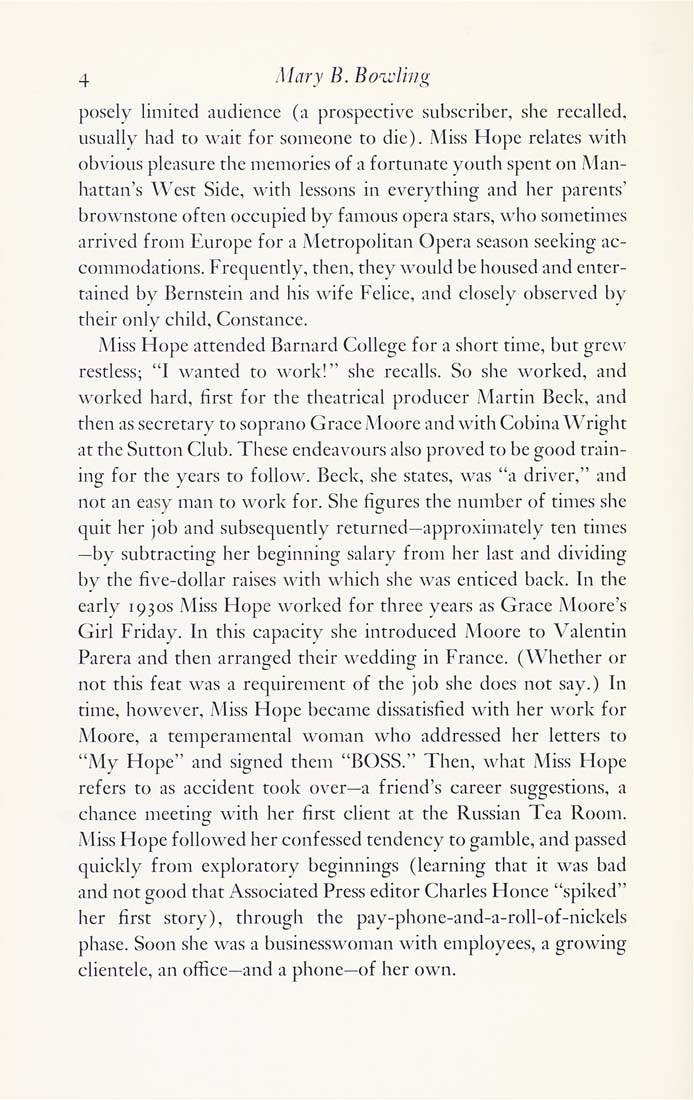Columbia Library columns (v.26(1976Nov-1977May))
(New York : Friends of the Columbia Libraries. )
|
||
|
|
|
|
| v.26,no.1(1976:Nov): Page 4 |

4 Alary B. Boivlivir posely limited audience (a prospective subscriber, she recalled, usually had to wait for someone to die). Miss Hope relates with obvious pleasure the memories of a fortunate youth spent on Man¬ hattan's West Side, with lessons in everything and her parents' brownstone often occupied by famous opera stars, who sometimes arri\ed from Europe for a Metropolitan Opera season seeking ac¬ commodations. Frequently, then, they would be housed and enter¬ tained by Bernstein and his wife Felice, and closely observed by their only child, Constance. Miss Hope attended Barnard College for a short time, but grew restless; "I wanted to work!" she recalls. So she worked, and worked hard, first for the theatrical producer Martin Beck, and then as secretary to soprano Grace Moore and with Cobina Wright at the Sutton Club. These endeavours also proved to be good train¬ ing for the years to follow. Beck, she states, was "a driver," and not an easy man to work for. She figures the number of times she quit her job and subsequently returned—approximately ten times —by subtracting her beginning salary from her last and dividing by the five-dollar raises with which she was enticed back. In the early 1930s Miss Hope worked for three years as Grace iVIoore's Girl Friday. In this capacity she introduced Moore to Valentin Parera and then arranged their wedding in France. (Whether or not this feat was a requirement of the job she does not say.) In time, however, .Miss Hope became dissatisfied with her work for Moore, a temperamental woman who addressed her letters to "My Hope" and signed them "BOSS." Then, what Miss Hope refers to as accident took over—a friend's career suggestions, a chance meeting with her first client at the Russian Tea Room. Miss Hope followed her confessed tendency to gamble, and passed quickly from exploratory beginnings (learning that it was bad and not good that Associated Press editor Charles Honce "spiked" her first story), through the pay-phone-and-a-roll-of-nickels phase. Soon she was a businesswoman with employees, a growing clientele, an office—and a phone—of her own. |
| v.26,no.1(1976:Nov): Page 4 |







